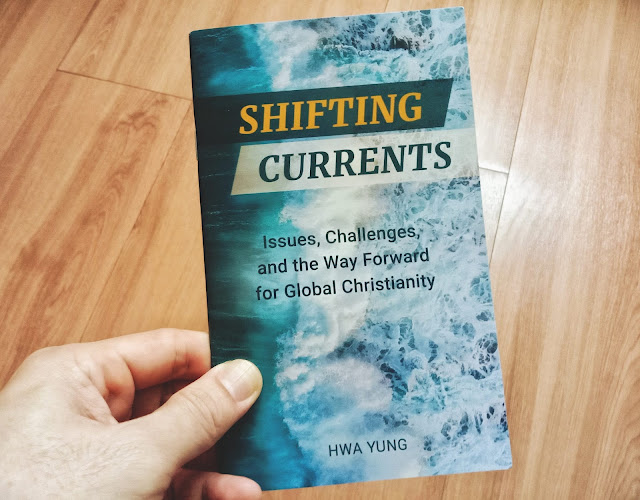Usually, I don't write reviews for a booklet that I read but since the message here is quite important (and perhaps urgent) for us Christians - especially the East Asian Christians - to look at, I think it is good for me to share it briefly. This booklet is based on Bishop Emeritus Hwa Yung's talk at the World Assembly of the IFES, South Africa, in July 2019. Hwa Yung believes that there are significant shifts in global Christianity, namely, from the Western World to the Majority World, and with it comes great issues and challenges. "Christians in the Majority World (or Global South) will forever owe an incalculable debt of love to those from the West who brought the gospel to us in the past, often at great cost to themselves... Moreover, there is still so much in western Christianity that is good, noble, and worth emulating," he writes, "Nevertheless, in recent years, I have reluctantly come to the conclusion that I have to think twice before I look to today's western churches for answers." I agree with Hwa Yung's realistic comment here. We need to be grateful and yet, careful.
Churches in the Majority World must have their own identities, independence, and influence from the West. The goal, I believe, is not for separation but for mutual benefits. It doesn't mean that we have to reject everything (God forbids!) but we do have to contextualize certain areas of our differences such as theology, culture, ways of thinking, and doing church and mission. Hwa Yung observes that "many churches in the Majority World still function as appendages and extensions of the churches in the West." The Majority World must grow into maturity so that instead of depending on the West for models and answers, they will "be able to work alongside those in the West with real confidence and contribute to their well-being." In short, genuine mutuality and mature partnership with one another. In his talk, the author outlines five (5) key issues and their related challenges (to know more, read this booklet or watch his talk on YouTube):
1) Worldviews and the Intellectual Challenge
2) The Growth of the Majority World Churches and the Recovery of the Supernatural
3) Ministry and Mission by Human Management vs. Dependence of the Spirit
4) The Challenge of Shallow Discipleship or Nominalism
5) Confidence In the Gospel of Christ
His concluding thoughts - the way forward for global Christianity - are worth considering and praying about. One that stands out for me is this: "If we the Majority World are to live out our calling to serve the global church, we must learn one important lesson from western church history. It is simply that the advance of the kingdom of God will inevitably involve costly sacrifice.” Amen.
To read my other book reviews/ summaries by the same author, CLICK THE TITLES to read:
Beyond AD 2000: A Call to Evangelical Faithfulness (1999)
Bribery and Corruption: Biblical Reflections and Case Studies for the Marketplace in Asia (2018)
#ServeToLead #PreachTheWord #ShiftingCurrents #GlobalChristianity #HwaYung #IFES #LeadersAreReaders #LetsMakeReadingCoolAgain
To read other articles on reading and book reviews, CLICK HERE
All things media: https://linktr.ee/LEGASI.tv
THINK BIG. START SMALL. GO DEEP.





















